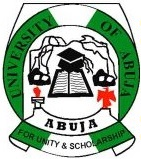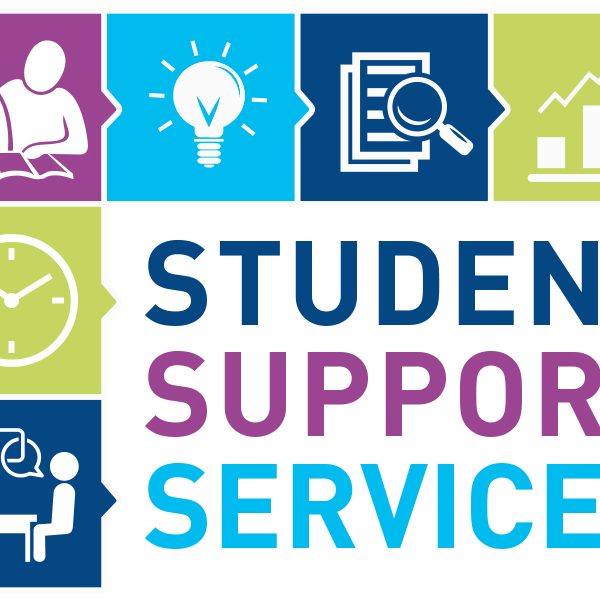BUS 101: Introduction to Business I (3 Credits)
This course is designed to familiarize students with the meaning and nature of business, forms of business ownership, corporate social responsibility, business environment, profit and profitability and the prevailing government reform programmes/policies (privatization and commercialization, bank recapitalization etc.)
BUS 102: Introduction to Business II (3 Credits)
This course is designed to provide students with clear understanding of the various with functional areas of business; finance function, human resource planning and development, production function, marketing function, entrepreneurship, business risk and insurance, computer application in business
BUS 103: Business Mathematics I (3 Credits)
A course designed to offer the students the opportunity to gain the necessary mathematical tools for coping with modern technological society, Linear equation and inequalities, ratios, proportions and variations. A general introduction to differential and integral calculus, graphing and analyzing polynomial logarithm and exponential functions, mathematics of finance.
BUS 104: Business Mathematics II (3 Credits)
An introduction to the concept of limit, continuity and derivative, mean theorem and application of derivative such as maximization and curve; sketching, methods of integration, inverse trigonometric functions, application of the integral multiple integrals, vector spaces and metric algebra, matrices and determinants. Analysis of the time value of money. Basic probability theory.
ACC 101: Principles of Accounting I (3 Credits)
(see description under Accounting Department)
ECN 101: Principles of Economics I (3 Credits)
(see description under Economics Department)
GST 101A: Use of English (2 Credits)
(see description under General Studies Department)
GST 103: Nigerian People and Culture (2 Credits)
(see description under General Studies Department)
ACC 102: Principles of Accounting I (3 Credits)
(see description under Accounting Department)
ECN 102: Principles of Economics I (3 Credits)
(see description under Economics Department)
GST 101B: Use of English (1 Credits)
(see description under General Studies Department)
GST 122: Use of Library (1 Credit)
(see description under General Studies Department)
BUS 211: Management Theory I (3 Credits)
An overview of organizational, External Environment of organizations, Evolution of Management Theory, the planning process, management by objective concept, decision-making process, organizational structure, organizational objectives and goals. Fundamentals of organizational design, co-ordination and span of management. The concept of staff, selection and appraisal performance of managers. The Nigerian environment. Management problems in Nigeria challenges of industrialization transferability of management systems.
BUS 212: Management Theory II (3 Credits)
Further management development, nature of management development, directing, motivation, leaders, authority and supervision, basic elements of control. Dynamic organization and behaviour, Expectancy theories, integration, integration controls, with other management processes. Discipline approaches, rules and penalties, management problems in Nigeria.
BUS 213: Principles of Marketing I (2 Credits)
Basic components of marketing, including product policy, promotion, consumer Behaviour and pricing, emphasis on current marketing practices, Basic products and strategy concepts and development.
BUS 214: Principles of Marketing 1 (2 Credits)
Theory and practice of advertising, Developing, advertising messages, market product integration, channels of distribution, technological, social and economic aspects of the distribution system. Analysis of current trends in marketing problems and policies. Critical analysis of marketing, consideration of current development in theory, activities of regulatory agencies, analysis of ethical, social and public policy aspect of marketing changes.
BUS 215: Business Statistics II (3 Credits)
Meaning and scope of statistics. Method of collecting and analyzing business data, frequency distribution and graphical representation, measures of location, measures of variability, simple linear regression and correlation index numbers, time series analysis. Application of statistical techniques to Research methodology, sample Design, multiple regression analysis. Introduction to Business forecasting, Basic Decision theory techniques.
BUS 216: Business Statistics II (3 Credits)
Probability theory; stochastic variables, multiplication and addition rules, permutations and combinations, Bayes theorem, Discrete and continuous probability distribution Binomial, Hyper geometric, poison and exponential distribution, Normal distribution, point and internal estimation (large and small sizes) statistical estimation, Hypothesis Testing, Chi-square application Goodness of fit test and Analysis of variance.
BUS 217: Business Finance I (3 Credits)
Overview of financial management Evolution of finance, forms of Business organizations, interest role patterns, fundamental concepts in finance, Risk, Risk of Return, compound interest and time value of money, stock and Bond values, financial forecasting, introduction of Analytical financial management with emphasis on the management of the short-term uses, and sources.
BUS 218: Business Finance II (3 Credits)
Analytical of financial statements, working capital management, cash and marketable securities, accounts Receivable and inventories, short term credits, capital budgeting, investing in fixed Assets, long-term Receivable and inventories, short term financial Decisions, long-term debt and preferred stock, common stock, target capital structure, cost of capital, dividend policy, mergers, leasing, Bankruptcy and Reorganization, warrants and convertibles.
BUS 220: Industrial Psychology I (3 Credits)
Nature and scope of industrial psychology, psychology of Human Development and Personality, Social Psychology, working in group, Group Dynamics and effectiveness, work integration, social skills in supervision and management, community and National Behaviour psychology and socio-technical systems; selection and Training procedures. Application of psychological knowledge to industrial problems such as personal selection, employee motivation and satisfaction and the influence of organization on behaviour.
CSC 200: Introduction to Computer (2 Credits)
(see description under Computer Science Department)
GST 222: Peace and Conflict Resolution (2 Credits)
(see description under General Studies Department)
POS 101: Introduction to Political Science I -Elective (3 Credits)
(see description under Political science Department)
SOC 101: Introduction to Sociology I -Elective (3 Credits)
(see description under Sociology Department)
POS 102: Introduction to Political Science II -Elective (3 Credits)
(see description under Political science Department
SOC 102: Introduction to Sociology II -Elective (3 Credits)
(see description under Sociology Department)
BUS 311: Analysis for Business Decision 1 (2 Credits)
Detailed study of application of quantitative decisions to policy and planning systems. Designed to offer the opportunity for a comprehensive understanding of the functional areas of logistic and the integration of these functions into an effective and efficient logistic system. Business Decision techniques include modeling and optimization of deterministic and non-deterministic systems in the applied areas of business, fundamentals of decision theory, Decision making with decision trees and utility theory, marginal analysis and normal distribution, cases for analysis, mathematical programming.
BUS 312: Analysis for Business Decision II (2 Credits)
Detailed application of Linear Programming include graphical and simplex methods, primal and duality concepts. Fundamental concepts of transportation problems and Assignment problems. Queuing theory, markor analysis for decision making approach Game theory. Concept of simulation, project management.
BUS 313: Managerial Economics (3 Credits)
A comprehensive course in operations of individual markets, market structure, theory of the firm, theory of production, demand theory, theory of cost, short run and the long run costs, optimization, Elasticity of demand, theory of consumer behavior, indifference curve approach, consumer’s equilibrium substitution effect. Evaluation of mathematical models, scopes and methods of economic analysis
BUS 314: Industrial Relations (3 Credits)
A survey of industrial relations laws in Nigeria, Union Organization and functions, Union objectives and behavior, impact of the union upon management. Trade Union federation, Central Labour Organization and international affiliations. The nature of collective bargaining. Trade union Acts. Labour Acts and trade disputes Acts, Judicial decisions including Arbitration panels and industrial courts awards. The impacts of labour laws on industrial relation activities and strategies in Nigeria.
BUS 315: Business Communication (2 Credits)
A course stressing the importance of and problems in effective communication within the organizational setting. Special emphasis will be given to problems of horizontal and vertical communication, communication blockage, informal communication channels and the effects of organizational structures and leadership patterns on communication opportunity for developing business writing proficiency. The course stresses, general techniques of report organization and graphic presentation and documentation. Dynamics of inter personal communication both verbal and non-verbal interaction is explored in terms consequences on the communication process.
BUS 316: Human Resources Management (3 Credits)
This course is designed to familiarize students with modern human resources techniques and methods successfully adopted in progressive industrial and commercial organizations; Designed to offer the opportunity for a comprehensive understanding of the functional areas of personnel and the integration of these functions into an effective and efficient personnel system. Introduction and application of various personnel management principles, approaches to personnel system. Introduction and application of various structure, supply and demand characteristics of labour, manpower planning, motivation, leadership styles, training and Development, performance appraisal, Disciplinary, procedure, Employee welfare, job analysis safety and health programmes and communication process, career planning, compensation and manpower forecasting.
BUS 317: Business Law (2 Credits)
Origin and Development of law, Judicial procedure, contracts and wills with emphasis on consumer business rights and responsibilities, Agency, partnership, corporations, sales, commercial paper, creditor’s rights and secured transactions under the uniform commercial code, legal environment or real property ownership, transfer and legal brokerage, mortgage transaction.
BUS 318: Research Methods (2 Credits)
Sampling and sampling design. Time and cost problems in research. Questionnaire design developing students’ skills in analyzing and writing reports based on an empirical or library study of a specific subject matter or topic in relevant management studies, information gathering, analysis and interpretation in dealing with business and organizational behavior.
BUS 321: Entrepreneurship Development (3 Credits)
Designed to offer the opportunity for a comprehensive understanding of the functional areas of marketing and the integration of these functions into an effective and efficient marketing strategy for the firm. Other topics include the approach to the process of purchase decisions from the standpoint of both consumers, and marketers. Consideration is given to implications for marketing from social science theory and methodology, consumerist movement. An examination of channels of distribution, social and economic aspects of the distribution system. Basic production and strategy concepts are examined, including the management of innovation and market product integration, product Development modification and elimination strategies are studied, product concept, Development and the life cycle, pricing management and market segmentation are covered.
BUS 323: Money and Banking (3 Credits)
Designed to expose students to the various elements of monetary theory, Relationships between money, prices, production and employment Factors determining money supply, operation of capital markets with reference to Nigerian environment, Commercial Bank management Direction and Co-ordination of the various functions of the commercial bank including money position funding, lending, capital management, trust and auxiliary functions.
ACC 211: Intro to Financial Accounting I (3 Credits)
(see description under Accounting Department)
ECN 201: Micro-Economics I (3 Credits)
(see description under Economics Department)
ACC 212: Intro to Financial Accounting II (3 Credits)
(see description under Accounting Department)
ECN 202: Micro-Economics II (3 Credits)
(see description under Economics Department)
CSC 300: Computer Application (3 Credits)
(see description under Computer Science Department)
GST 301B: Introduction To Entrepreneurial Skills II (2 Credits)
(see description under General studies Department)
BUS 411: Business Policy I (2 Credits)
Concept of strategy in relation to business, corporations and management linkages between organization and their environments. Concepts of policies, decision-making, business objectives, performance criteria, structure and managerial behaviour. Practice in calculating simple financial and economic indices from business data and other accounting information. Analysis of the role, of employee and managerial behaviour in success or failure of strategy implementation. Integrated analysis.
BUS 412: Business Policy II (2 Credits)
Detailed analysis of a firm’s opportunities and threats, strengths and weaknesses. Selecting strategies and structure of public liability companies from their published annual reports. Developing clear business objectives, setting clear strategies and policies and presenting structures that are capable of being used in implementing chosen strategies. Organic business functions of marketing, production, finance and personnel in Nigeria. Management process of corporate planning, budgeting and control, business performance appraisal, managing by objectives, motivating group and individual efforts and generally relating an organization to the changes taking place in the environment. Predicting the dynamic environment. Impact of environmental changes on the strategies and performance of a firm. Recent developments affecting the strategy formulation and implementation processes of firms in Nigeria.
BUS 419: International Business (3 Credits)
A consideration of the financial problems of firms engaged in international business including the effect of the host country policies on private investment flows. The importance of international trade, international trade and specialization. International trade, international trade and specialization. International trade and the company problems of international trade, facilitating international trade, organizational trade, organization for export, organization for importing, government control and world commerce world economic communities, multinational corporation; its economic, legal and political dimensions.
BUS 424: Advancement Management Theory (2 Credits)
A comprehensive study of the decision-making process and methodology for examining, defining, analyzing and solving complex problems. Overview of system approach human factors, man-machine systems, design method, Training, cybernetics, concept of feedback and Control system. Emphasis is on leading theories and concepts in the management of bureaucratic structures, administrative behaviour an techniques and their environment.
BUS 426: Comparative Management (2 Credits)
The comparative approach to management and Administration. Elements of management and administration. The skill management in private and public sectors. The military administrator, the civil servant, the manager as inter-changeable experts. Constraints of organizational setting on the management of group activities, profiles of Nigerian executives that have moved from public to private sectors. The use of management consultants and management contracts in streamlining the operation. Theories of comparative management. A human resources management model that meets the needs of private and public sectors. Selected problems in comparative management and Administration, motivating personnel, controlling and rewarding performance, training and developing staff, introducing change and modifying employee behaviour.
ACC 315: Cost Accounting I (3 Credits)
(see description under Accounting Department)
ACC 311: Financial Accounting I (3 Credits)
(see description under Accounting Department)
ACC 316: Cost Accounting I (3 Credits)
(see description under Accounting Department)
ACC 312: Financial Accounting I (3 Credits)
(see description under Accounting Department)
BUS 413: Small Business Management (3 Credits)
The course focuses on the operation of small business, theory and practice of small business management. Analysis of the accounting, finance, production and marketing functions as they pertain to entrepreneurial endeavors. Develops overall managerial awareness. The course also focuses on the importance of small business management and its relationship to Nigerian economy, and the opportunities anti requirement unique to operation and management.
BUS 414: Organizational Behaviour (3 Credits)
Concepts of behavior, organization managers, administrators and performance. Individual behavioral process such as personal systems, self-concept development, interaction styles, Group behavioral processes such as informal structures, norms of work and play status based rewards and punishments, leadership, task distribution, and performance appraisal theories of organizational behaviour and relevance to Nigeria behavioral model building. Theories of behavioral change managing resistance to planned changes. Behaviour modification. Formal work systems. The of informal and emergent work systems. Integrity, inefficiency and motivation theories, Attitude to work, Behaviour modification. Designing effective organization in Nigeria. Empirical data on supervision, managerial and employee behaviour in Nigeria.
BUS 415: Production Management (2 Credits)
Elements of production. Production and process design management, production systems and mode. Production planning, sales forecasting factors of production, plant layout and materials handling system. Quality control, modern tools and machinery of production, lines balancing automation, production scheduling and control, work, study, maintenance and tools and equipment. The production function within the corporation location of plant. Applications of modeling and optimization techniques.
BUS 416: Production Management II (3 Credits)
Concepts of production and operations function. Determination of Economic order quantity, Resource procurement and operations control. Development of efficient works methods, Quantity assurance control techniques, Health and safety at work. Incentive schemes, emphasis motivation. Linear programming C.P.M and PERT analysis. Examination of modern industrial systems, objectives, organization and economics of production management. Inventory control and optimization of resources are covered.
BUS 417: Investment Analysis (2 Credits)
Application of investment principles to management of investment portfolios of individuals and institutions consideration of business cycles, investment constraints, investment timing and securities. Application and evaluation of quantitative tools of analysis in the risk aversion theory and analysis of equilibrium in the financial markets and the changing structure of financial intermediation. Capital assets pricing, efficient markets, portfolio theory.
BUS 418: Corporate/Strategies Planning (3 Credits)
The concepts and theory of planning, strategic planning environmental study analyses, Technological forecasting socio-political forecasting, industry analysis, planning tasks and techniques operational planning and the allocation processes, organization for planning Organizational and behavioral planner, managing and corporate planning process.
BUS 422: Management Information System (3 Credits)
The course is designed to expose the students to the expanding role of information systems and the people managing the human side of systems and managing information resources. Evaluation of computer and organization of computer and functional units of computer. MIS-Methodologies: Planning of MIS, developing MIS, implementation of MIS and evaluation of MIS covered Historical perspective: Mainframes to micros, managing and controlling the MIS function. The effect of MIS on management and the management process. The changing world of MIS.
BUS 420: Research Project (6 Credits)
An application of business research methods, a planned programme of observation, study and work in a selected firm or organization. A project paper is required in the course and students are required to apply the concepts of research techniques applicable to business decision-making
ACC 419: Management Accounting I (3 Credits)
(see description under Accounting Department)







